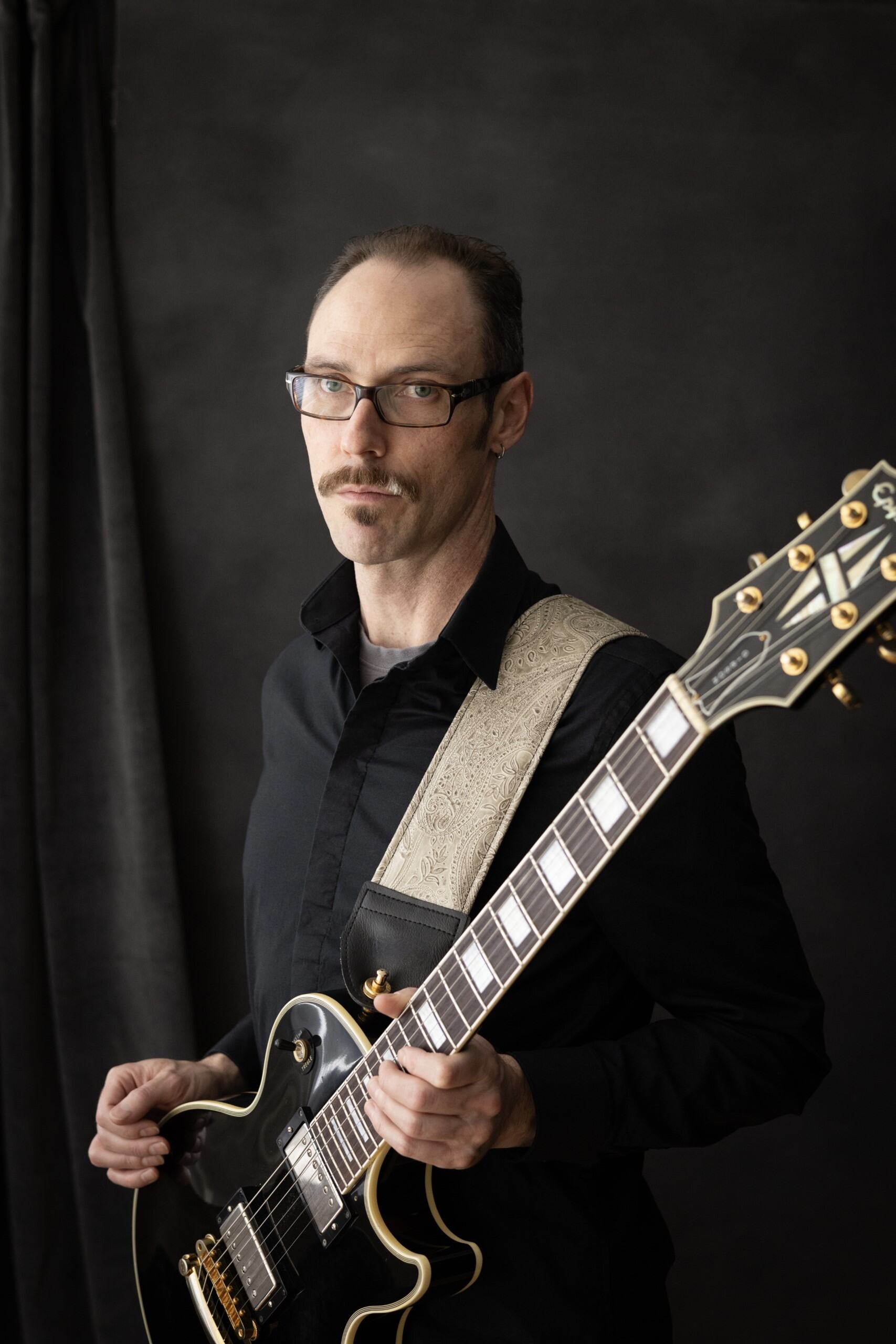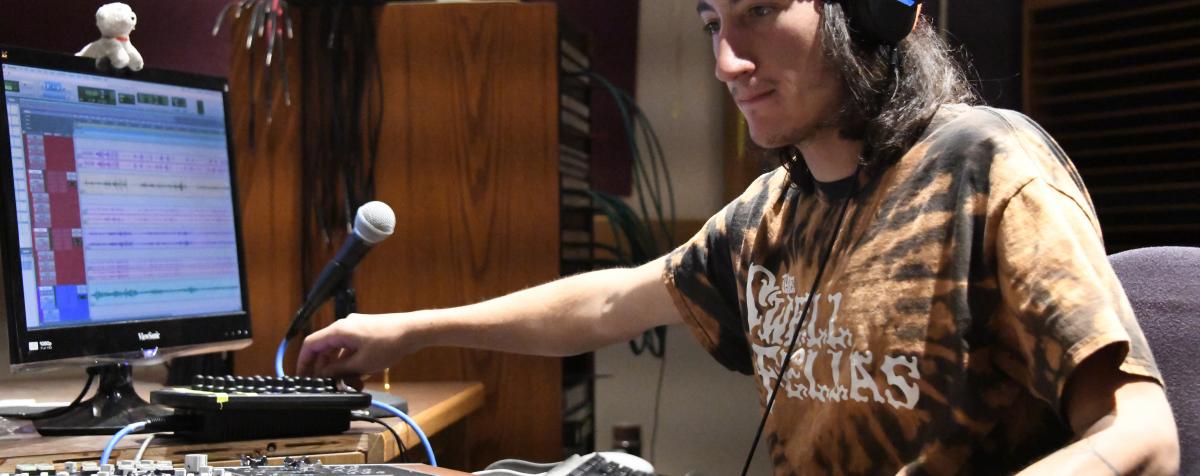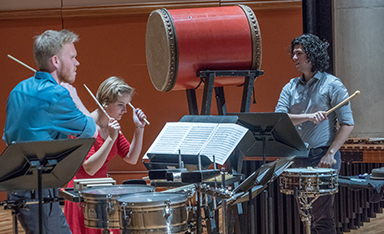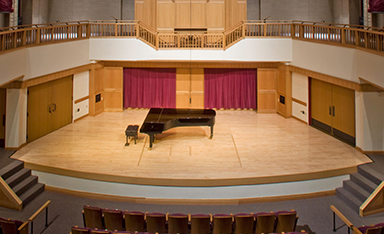The Bachelor of Music in Recording and Production prepares students for creative and technical leadership in the evolving world of music production. This selective program offers expert training in music performance, recording, mixing, and producing music across a wide range of genres — including classical, jazz, popular, and rock — all within the rich academic environment of a liberal arts university. In this program, you’ll receive a comprehensive education that integrates hands-on experience in studio recording and audio production with a strong foundation in musicianship. A robust performance component — including applied lessons in classical or jazz & commercial performance, ensemble participation, and regular performance opportunities — complements coursework in music theory and history, ensuring students develop as expressive performers as well as skilled producers. Professional training in engineering and production equips graduates to be both technically proficient and musically versatile.
Lamont’s state-of-the-art recording facilities and vibrant performance calendar offer unmatched opportunities for collaboration, allowing students to build a professional portfolio that reflects both artistic sensitivity and technical expertise. Each of our building’s concert venues is directly linked to our recording studio, giving students direct access to hands-on recording experience in a variety of sound environments and musical genres.
In addition to core musical training, the program emphasizes the development of transferable skills — including critical listening, problem-solving, creativity, and emotional intelligence — preparing students for diverse careers in the music industry and beyond.
This degree is ideal for aspiring producers, engineers, and artists who want to shape the future of sound through technical mastery and a developed musical ear.
Part One: Portfolio
All applicants must complete and submit a recording and production portfolio that includes the following required materials:
- Submit at least one audition recording that you have engineered by yourself. The most successful applicants submit stereo mixes of multi-track/multi-microphone recordings involving real musical instruments, instead of completely digitally-generated music.*
- Submit a 1—2 page technical explanation of how and why you recorded, mixed, and mastered the recording(s). Include a list of microphones and other input devices used, as well as the type of signal processing such as equalization and compression.
- Submit a statement outlining your future plans and reasons for seeking admission to this program. This statement is separate from the essay required by the Common Application.
-
*Additional information regarding audio recording requirement
*For example, this might be a recording of a popular song involving drum set, electric bass, electric guitar, synthesizer, and voice, or a jazz tune involving piano, bass, drums, and saxophone. Recordings of classical ensembles using basic stereo microphone pairs are also acceptable but should be supplemented with something more complex like the first two examples. Recordings done in commercial recording studios are discouraged unless there is substantial proof that you are employed as an engineer or currently serve as an intern at that studio and that you were not assisted in production of your submitted recordings.
Part Two: Audition
In addition to submitting a recording and production portfolio, all applicants must also perform a successful audition in a performance area OR submit a composition portfolio. See requirements listed below by area.
Faculty






